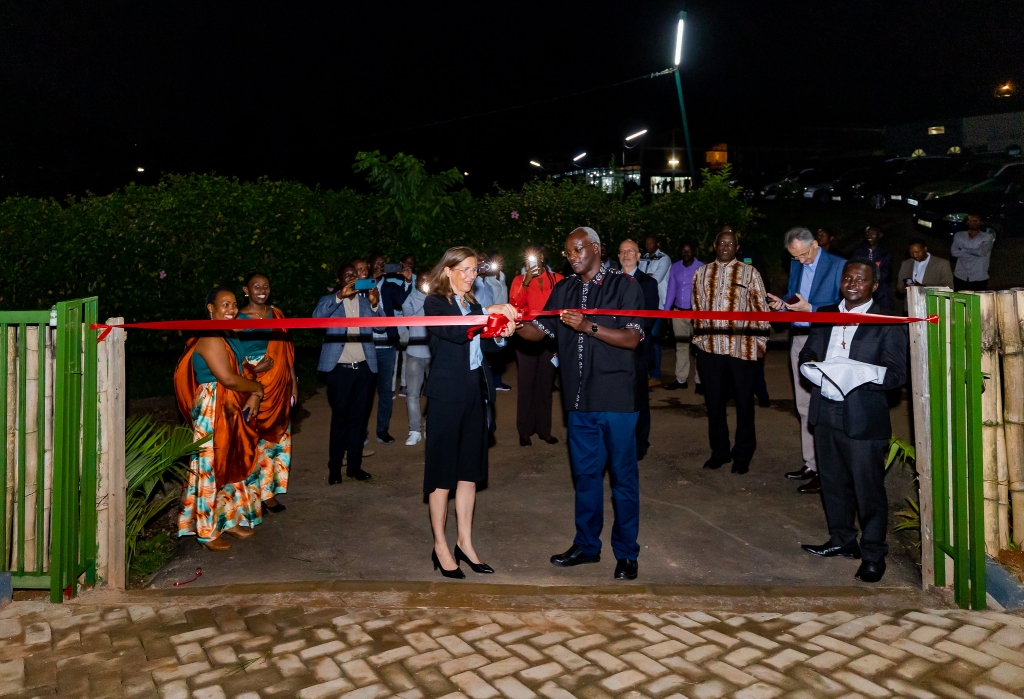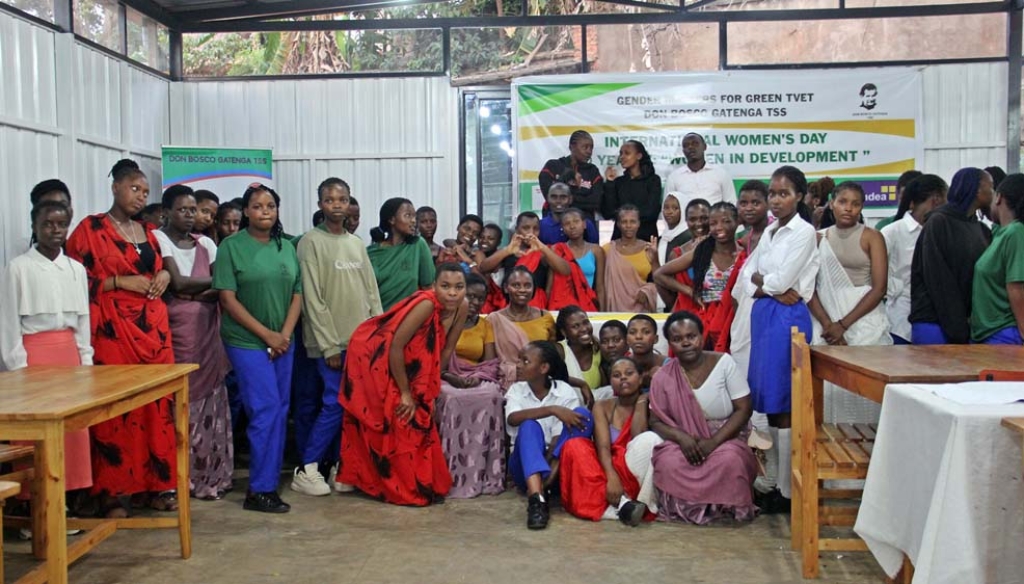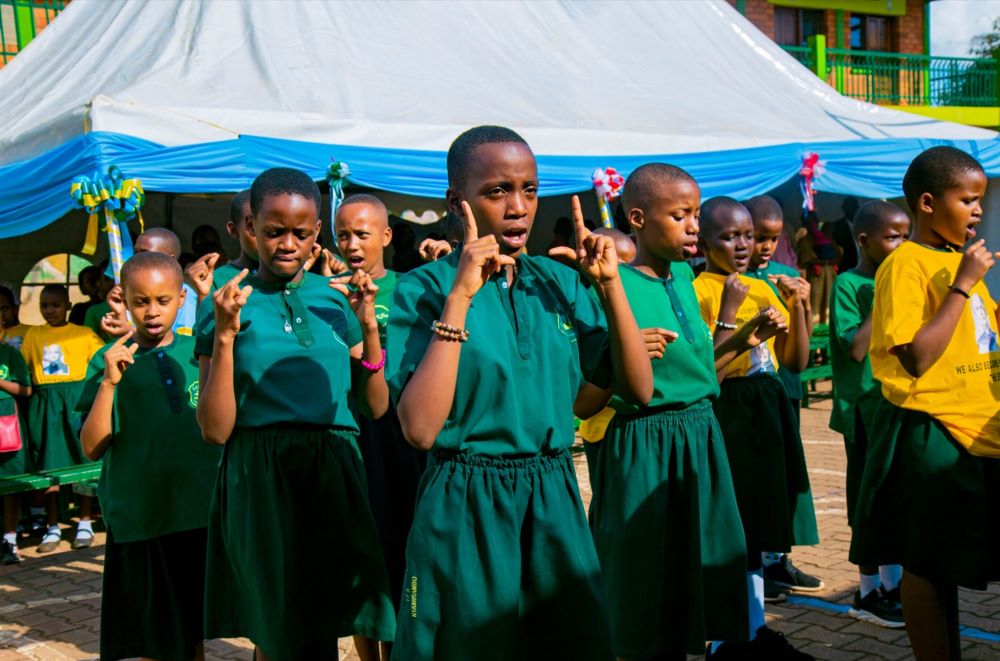RWANDA: Salesian students present and sell clothing and products made in Salesian courses at local market
(MissionNewswire) In September, Don Bosco Technical & Vocational Center, located in Butare, Rwanda collaborated with a local nonprofit, Luti, to organize an exhibition and a sales event in front of a local market to present and sell some of the products make by vulnerable groups benefiting from their Salesian education. The goal was to provide the students some financial autonomy and a way to make a living from their work.
Students participating in the event were the young mothers who attended courses at the Salesian vocational training center. Through their educational courses they had designed and produced blouses, skirts, dresses, pants, bags and more. Selling the products in the market was a way to highlight their skills and their talents.
“This initiative has motivated the local administrative authorities to support our activities. It was a good way to let ourselves be known and make known the products of our female students,” says Father Raphaël Katanga, director of Don Bosco Technical & Vocational Center. “The Salesian community of Rango was very proud to see the local population and people from neighboring towns interested in the products of our beneficiaries.”
Fr. Katanga adds that the exhibition was just the prelude to a vast network of collaborations that the Salesian Center had recently started with other private organizations.
“This event was an opportunity to present one of the goals of the Salesian Center to the general public, which is to give hope to the young mothers marginalized by society by promoting their social and economic development,” adds Fr. Katanga. “The journey will be a long one, but we are sure that with this first show we have started along this path with our partners.”
Rwanda has made remarkable progress since the 1994 genocide in the country, particularly in providing education and health services to the poor, according to UNICEF. However, with high rates of poverty, there is still much to be done. Close to 57 percent of the country’s population of 10 million lives below the poverty line and for those under the age of 18, the poverty rate increases to more than 60 percent. UNICEF notes that subsistence farmers, households headed by youth and those without assets and adequate household resources remain the poorest and the most vulnerable to worsening poverty and the effects of natural disasters, food insecurity and economic crises.
With half of Rwanda’s population under the age of 18, lack of educational opportunities is a concern. Half of all children who enroll in primary school don’t finish and go on to face a future of unemployment or employment at low-paying jobs. In addition, almost four percent of children aged 5 to 14 are working in domestic service or other jobs instead of going to school.
Salesians have been working in Rwanda for many years to provide educational opportunities to poor youth. They operate primary, secondary and vocational schools throughout the country, as well as offer recreational activities, English language classes and agricultural programs.
“Students in Rwanda are taking steps to rebuild their lives and their country,” says Father Mark Hyde, executive director of Salesian Missions, the U.S. development arm of the Salesians of Don Bosco. “Learning skills in employable industries allows students to find jobs in high growth sectors to help them support themselves and their families.”
###
Sources:
ANS – Rwanda – Crafts Exhibition and Sales from workshop for young mothers
UNICEF – Poverty in Rwanda




